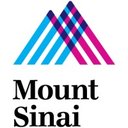Mount Sinai Health System
Postdoctoral Fellow-Personalized Medicine
Job Description
Postdoctoral Research Fellowship in Causal Machine Learning and Artificial Intelligence
Charles Bronfman Institute of Personalized Medicine and Division of Data Driven and Digital Medicine (D3M)
Icahn School of Medicine at Mount Sinai
We are seeking applications for a Postdoctoral Research Fellowship in Artificial Intelligence (AI) with a focus on Causal Machine Learning and Reinforcement Learning, particularly in applications to electronic health records (EHR) and clinical care. This fellowship will be jointly hosted by the Charles Bronfman Institute for Personalized Medicine and the Division of Data Driven and Digital Medicine at the Icahn School of Medicine at Mount Sinai in New York, NY.
Our institutions are dedicated to advancing precision medicine through cutting-edge AI techniques. Key research areas of interest include, but are not limited to: multimodal data integration, deep learning for disease outcome prediction and personalized treatment recommendations, causal machine learning and reinforcement learning for data-driven management strategies, AI-powered clinical decision support systems, and converting real-world data into actionable evidence for regulatory purposes. We are particularly focused on applications in critical care medicine, including fields such as critical care nephrology, cardiology, and nutrition.
Dr. Ankit Sakhuja and Dr Girish Nadkarni will jointly supervise the successful candidate. The candidate will have the opportunity to work with unparalleled data and computational resources. Data resources include (a) Access to >10 million patient records in the Mount Sinai Data Warehouse with multi-modal data; (b) The Mount Sinai Million health Discoveries Program with >100,000 patients with whole exome sequencing data linked to longitudinal clinical data; (c) Ability to deploy the models into clinical care.. He or she will have the opportunity to develop their own research projects and to lead or participate in local as well as international collaborations. As advisors, we actively encourage the professional development of our lab members and facilitate presentation of exciting findings in pioneering conferences.
The postdoctoral fellow will join a dynamic team of data scientists, geneticists, and clinicians and participate in unique opportunities to apply deep learning for important scientific breakthroughs and to directly impact patients’ lives in a clinical setting.
The ideal candidates will have the following background:
1. MD, MD/PhD or PhD in a quantitative science-related field (e.g., biostatistics, biomedical informatics, clinical informatics, machine learning etc.)
2. Expertise with programming and statistical software experience in R and/or Python.
3. Formal statistics or epidemiological training is a strong advantage.
4. Experience in Causal Inference and/or Machine Learning is a plus
5. Excellent publication track record.
6. Strong communication and presentation skills with fluency in spoken and written English.
Information on the Postdoctoral Training Program at Mount Sinai: http://icahn.mssm.edu/education/postdoctoral-training. To learn more about the Icahn School of Medicine at Mount Sinai: http://icahn.mssm.edu.Incoming postdoctoral fellows are eligible for affordable Mount Sinai Housing within walking distance of the medical school and of a wide range of amenities as well as visa sponsorship on a case-by-case basis.
Strength Through Diversity
The Mount Sinai Health System believes that diversity, equity, and inclusion are key drivers for excellence. We share a common devotion to delivering exceptional patient care. When you join us, you become a part of Mount Sinai’s unrivaled record of achievement, education, and advancement as we revolutionize medicine together. We invite you to participate actively as a part of the Mount Sinai Health System team by:
- Using a lens of equity in all aspects of patient care delivery, education, and research to promote policies and practices to allow opportunities for all to thrive and reach their potential.
- Serving as a role model confronting racist, sexist, or other inappropriate actions by speaking up, challenging exclusionary organizational practices, and standing side-by-side in support of colleagues who experience discrimination.
- Inspiring and fostering an environment of anti-racist behaviors among and between departments and co-workers.
At Mount Sinai, our leaders strive to learn, empower others, and embrace change to further advance equity and improve the well-being of staff, patients, and the organization. We expect our leaders to embrace anti-racism, create a collaborative and respectful environment, and constructively disrupt the status quo to improve the system and enhance care for our patients. We work hard to create an inclusive, welcoming and nurturing work environment where all feel they are valued, belong and are able to advance professionally.
Explore more about this opportunity and how you can help us write a new chapter in our history!
“About the Mount Sinai Health System:
Mount Sinai Health System is one of the largest academic medical systems in the New York metro area, with more than 43,000 employees working across eight hospitals, more than 400 outpatient practices, more than 300 labs, a school of nursing, and a leading school of medicine and graduate education. Mount Sinai advances health for all people, everywhere, by taking on the most complex health care challenges of our time — discovering and applying new scientific learning and knowledge; developing safer, more effective treatments; educating the next generation of medical leaders and innovators; and supporting local communities by delivering high-quality care to all who need it. Through the integration of its hospitals, labs, and schools, Mount Sinai offers comprehensive health care solutions from birth through geriatrics, leveraging innovative approaches such as artificial intelligence and informatics while keeping patients’ medical and emotional needs at the center of all treatment. The Health System includes approximately 7,400 primary and specialty care physicians; 13 joint-venture outpatient surgery centers throughout the five boroughs of New York City, Westchester, Long Island, and Florida; and more than 30 affiliated community health centers. We are consistently ranked by U.S. News & World Report’s Best Hospitals, receiving high “Honor Roll” status, and are highly ranked: No. 1 in Geriatrics and top 20 in Cardiology/Heart Surgery, Diabetes/Endocrinology, Gastroenterology/GI Surgery, Neurology/Neurosurgery, Orthopedics, Pulmonology/Lung Surgery, Rehabilitation, and Urology. New York Eye and Ear Infirmary of Mount Sinai is ranked No. 12 in Ophthalmology. U.S. News & World Report’s “Best Children’s Hospitals” ranks Mount Sinai Kravis Children’s Hospital among the country’s best in several pediatric specialties. The Icahn School of Medicine at Mount Sinai is ranked No. 14 nationwide in National Institutes of Health funding and in the 99th percentile in research dollars per investigator according to the Association of American Medical Colleges. Newsweek’s “The World’s Best Smart Hospitals” ranks The Mount Sinai Hospital as No. 1 in New York and in the top five globally, and Mount Sinai Morningside in the top 20 globally.
The Mount Sinai Health System is an equal opportunity employer. We comply with applicable Federal civil rights laws and does not discriminate, exclude, or treat people differently on the basis of race, color, national origin, age, religion, disability, sex, sexual orientation, gender identity, or gender expression. We are passionately committed to addressing racism and its effects on our faculty, staff, students, trainees, patients, visitors, and the communities we serve. Our goal is for Mount Sinai to become an anti-racist health care and learning institution that intentionally addresses structural racism.”
EOE Minorities/Women/Disabled/Veterans



